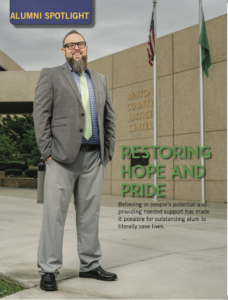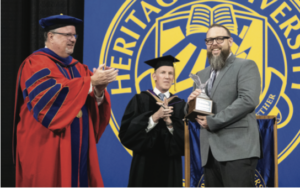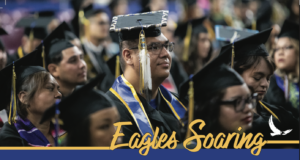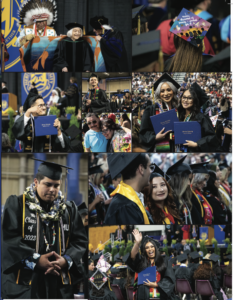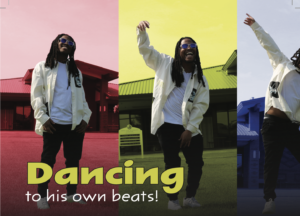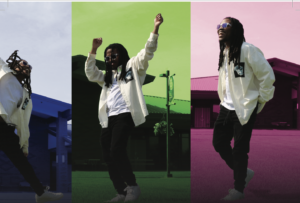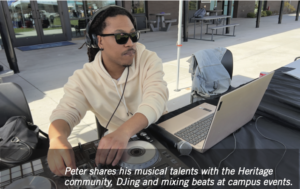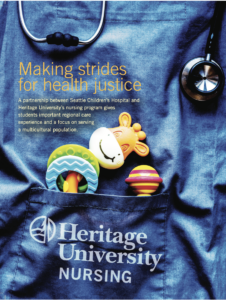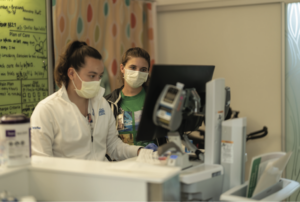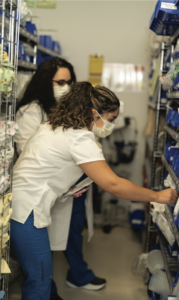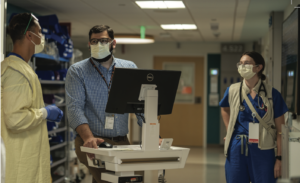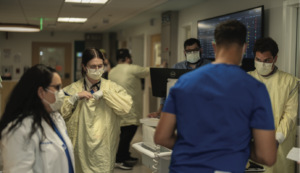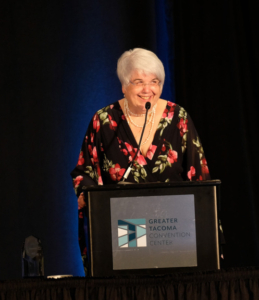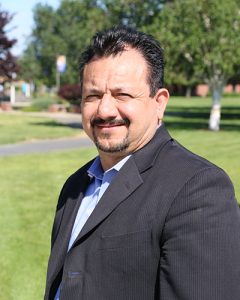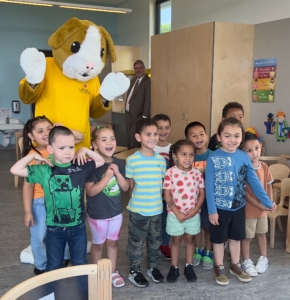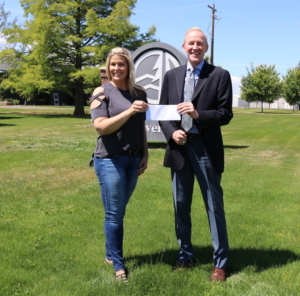Bountiful Generosity – WINGS Summer 2023
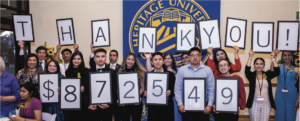 Gifts to Heritage’s annual Bounty of the Valley Scholarship Dinner breaks records and tops last year’s total raised by more than $100,000!
Gifts to Heritage’s annual Bounty of the Valley Scholarship Dinner breaks records and tops last year’s total raised by more than $100,000!
It was a record-breaking year for Heritage’s annual Bounty of the Valley Scholarship Dinner. The event brought in $872,549 for student scholarships, nudging out the previous record set in 2020.
“Words simply cannot express how grateful we are for all the support our friends and donors give to this university and our students,” said David Wise, vice president for Advancement and Marketing. “Our students depend upon the scholarships they receive in order to earn their degrees. Having so many people step up to provide the funding that makes their education possible has a dual effect. Not only does it reduce the barrier that the cost of going to college could have for students, but it also gives them and huge psychological boost knowing that others believe in their capability.”
Scholarship Dinner is the university’s single largest fundraising event. Since it began 37 years ago, it has raised more than $9 million, with every dime going directly to support Heritage University students.
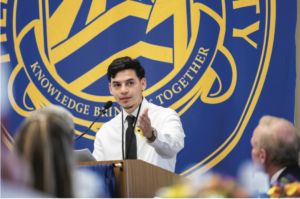
Student speaker Miguel Mendoza
“It is undeniable that the support our students receive from the community is what allows them to earn their college degrees. For more than 40 years, it is the amazing support of donors that has created the opportunity for nearly 11,000 people to earn their degrees at Heritage. Eleven thousand people who have then gone on from here to serve the community as educators, business leaders, healthcare professionals and more throughout the Valley. We are grateful for their incredible support,” said Andrew Sund, Ph.D., president of Heritage University.
For the second year in a row, the event occurred both in person and virtually. The program portion was live-streamed online, allowing those who were unable to attend the ability to participate from the comfort of their homes. Virtual guests were able to “raise their paddles” with just a click of a button on their computer.
“We have several supporters who have difficulties traveling. Some have been coming to Scholarship Dinner for years, and they are committed to our students. They’ve told me how much they enjoy being able to still participate, even if they are not physically in the same room,” said event organizer Dana Eliason, senior development director. “It is heartwarming to see their commitment to this university and our students.”
This year’s event program is available to watch online, and contributions are still being accepted. Visit heritage.edu/Bounty to view the video and click “Raise Your Paddle” to make your gift.
 Rosie Saldaña’s Heritage story came full circle this year when she was selected to paint the artwork for the Bounty of the Valley Scholarship Dinner. As an undergraduate at Heritage, she depended upon scholarships to help her fund her education.
Rosie Saldaña’s Heritage story came full circle this year when she was selected to paint the artwork for the Bounty of the Valley Scholarship Dinner. As an undergraduate at Heritage, she depended upon scholarships to help her fund her education.
“I’m tremendously overjoyed by the honor of being asked to paint this work,” she said.
Her painting, entitled Bounty of the Valley, portrays images and symbols of the Yakima Valley and Heritage University—fields of apples, workers bringing in the crops, Mt. Adams, and the statue at the university’s entrance.
“I also incorporated butterflies in the painting, a symbol of becoming something better than when we started,” she said. “I think a lot of students can relate to this. We start at school not really knowing what we want to do, we go through the process, and we blossom into butterflies, and we’re into this new career.”
Saldaña graduated with a Bachelor of Arts in Visual Arts in 2017. Today she is a working artist and Artistic Director at Mighty Tieton. In May, she received her Master of Arts in Museum Studies from Johns Hopkins University.


 2015
2015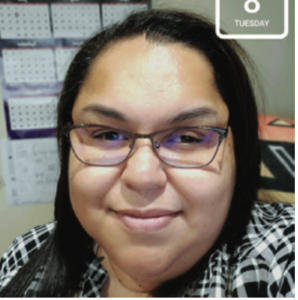 Cialita Keys (B.A., Environmental Studies) joined the Community Development team with the City of The Dalles in Oregon, where she is working as a planning technician. Prior to this, she worked for the Yakama Nation Environmental Management as a resource coordinator.
Cialita Keys (B.A., Environmental Studies) joined the Community Development team with the City of The Dalles in Oregon, where she is working as a planning technician. Prior to this, she worked for the Yakama Nation Environmental Management as a resource coordinator.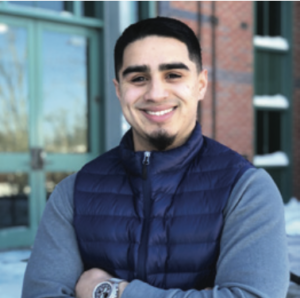
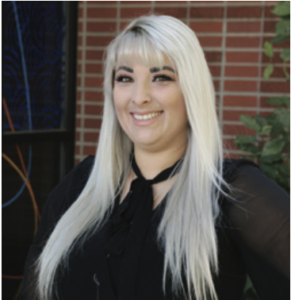 Maria Diaz (B.A., Psychology) started a new position at the Yakama Nation Tribal School. She is the school’s new counselor. Maria spent four years prior to this working as the enrollment services coordinator at Heritage University in the Admissions department. Additionally, she earned a Master of Arts in Psychology from Fisher College in May 2022.
Maria Diaz (B.A., Psychology) started a new position at the Yakama Nation Tribal School. She is the school’s new counselor. Maria spent four years prior to this working as the enrollment services coordinator at Heritage University in the Admissions department. Additionally, she earned a Master of Arts in Psychology from Fisher College in May 2022.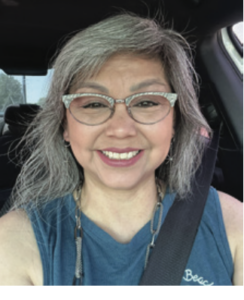 Brenda Lewis (B.A., Business Administration) joined Heritage University’s Admissions team in May. She is working as a transfer student admissions counselor. Prior to this, she spent two years working as a general ledger accountant for the Yakama Nation.
Brenda Lewis (B.A., Business Administration) joined Heritage University’s Admissions team in May. She is working as a transfer student admissions counselor. Prior to this, she spent two years working as a general ledger accountant for the Yakama Nation.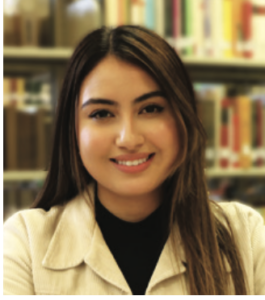 Perla Bolaños-Zapian (B.A., Business Administration) joined the Heritage University Advancement Team as the Donor Events and Stewardship Coordinator.
Perla Bolaños-Zapian (B.A., Business Administration) joined the Heritage University Advancement Team as the Donor Events and Stewardship Coordinator. 